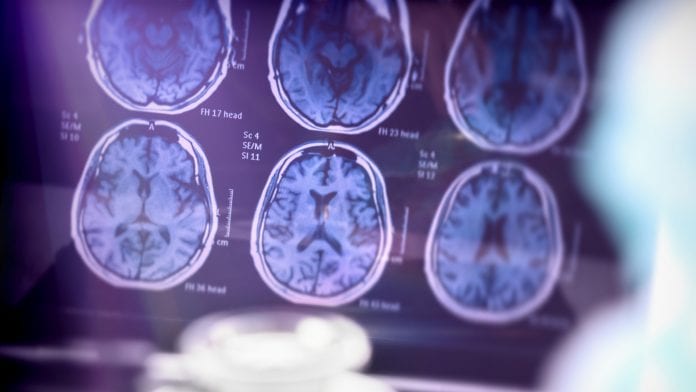
Researchers have discovered a less invasive and less costly method of diagnosing the potential for Alzheimer’s disease.
The team has uncovered the novel diagnosis method which can identify symptoms of Alzheimer’s disease before they occur. They found that cognitively healthy people who are at increased genetic risk of late-onset Alzheimer’s disease show significantly lower sensitivity to thermal pain, but felt greater unpleasantness related to that pain when compared to people at lower risk of the disease.
The team, from the University of Tennessee Health Science Center in conjunction with Ohio State University, has suggested that altered pain perception could potentially be used as a biomarker of late-onset Alzheimer’s disease before symptoms occur.
Diagnosis
Currently, early diagnosis methods for Alzheimer’s disease, which include lumbar punctures and positron emission topography (PET) scans, can be invasive and costly, but catching the disease early results in much better outcomes for patients.
Dr Ray Romano, PhD, RN, who completed the research as part of his PhD in the Nursing Science Program at the University of Tennessee Health Science Center (UTHSC) College of Graduate Health Sciences, said: “There is a real need to find ways to diagnose Alzheimer’s disease in the primary care setting where most patients first present with concerns for their memory.”
Romano conducted the research through the joint laboratory of Associate Professor Todd Monroe, PhD, RN, at The Ohio State University, who is also a graduate of the UTHSC Nursing Science Ph.D. Program and Dr Ronald Cowan, MD, PhD who is the Chair of Psychiatry at UTHSC.
Previously a specific genetic allele, APOE4, has been identified as a marker associated with an increased incidence of developing late-onset Alzheimer’s disease, and Dr Romano was able to identify individuals who were cognitively healthy but had the APOE4 allele, enabling him to determine whether people with the APOE4 allele responded differently to experimentally-induced painful stimuli than did cognitively healthy individuals who did not have this allele.
“In this exploratory study, Dr Romano demonstrated that healthy adults with a specific gene for developing late-stage Alzheimer’s disease experience pain differently than people without the genetic marker,” said Dr Monroe. “Next, we need to examine the brain’s pain systems to determine why this may be occurring. If future studies confirm these results, findings may eventually translate into earlier screening in people at risk of developing Alzheimer’s disease leading to more treatment options.”









